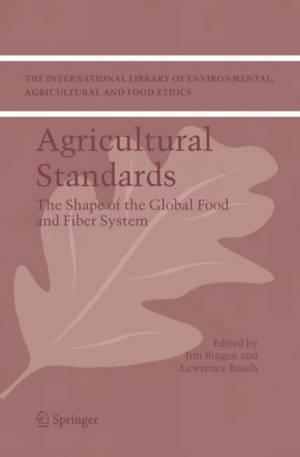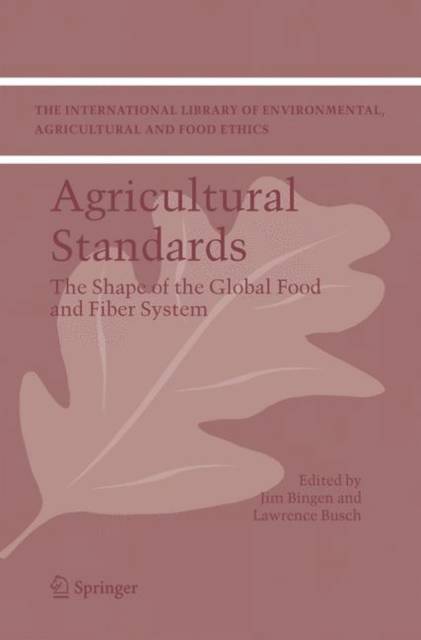
- Afhalen na 1 uur in een winkel met voorraad
- Gratis thuislevering in België vanaf € 30
- Ruim aanbod met 7 miljoen producten
- Afhalen na 1 uur in een winkel met voorraad
- Gratis thuislevering in België vanaf € 30
- Ruim aanbod met 7 miljoen producten
Agricultural Standards
The Shape of the Global Food and Fiber System
Omschrijving
Food and agricultural standards have recently risen to the top of both national and international agendas. Popular concerns about the power of the World Trade Organization focus on the intertwined relationships between environmental protection, labor and human rights, and the standards used to produce and supply our food and fiber globally. In the developing world, agricultural grades and standards are an important part of the reconfiguration of roles and responsibilities between various public and private actors in market reform.
This original and informative collection of studies of agri-food standards in the modern economy addresses these and helps to define the scope of the emerging study of the politics of standards setting. Following an overview essay dealing with the multiple ways of thinking about, approaching and defining food and agricultural standards, eleven case studies offer a rich body of evidence that assesses the processes, dynamics and potential consequences of global agri-food standards.
For all interested in the strategic use of food and agricultural standards - from those in national and international governmental agencies, researchers and others in the academic and private sector to those in the private business sector - this volume offers a broader perspective on and will serve as an important resource.
Specificaties
Betrokkenen
- Uitgeverij:
Inhoud
- Aantal bladzijden:
- 259
- Taal:
- Engels
- Reeks:
- Reeksnummer:
- nr. 6
Eigenschappen
- Productcode (EAN):
- 9781402039836
- Verschijningsdatum:
- 6/12/2005
- Uitvoering:
- Hardcover
- Formaat:
- Genaaid
- Afmetingen:
- 156 mm x 234 mm
- Gewicht:
- 566 g

Alleen bij Standaard Boekhandel
Beoordelingen
We publiceren alleen reviews die voldoen aan de voorwaarden voor reviews. Bekijk onze voorwaarden voor reviews.










